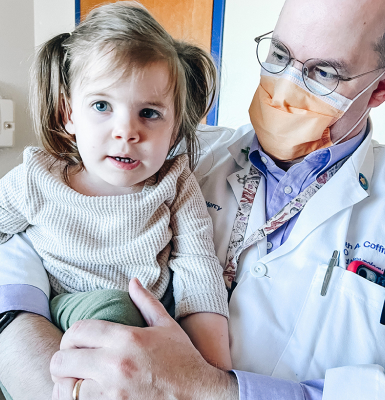In 2012, two independent research groups-an international consortium and a group of German researchers-identified de novo heterozygous mutations in the ATP1A3 gene performing next-generation sequencing to examine the genome of AHC patients. This finding was replicated by an independent Japanese study that found ATP1A3 mutations in patients with AHC. Currently, pathogenic variants in the ATP1A3 gene are recognized as causing AHC in nearly 80% of patients.
The citations to these three important studies follow:
Heinzen EL, Swoboda KJ, Sisodiya SM, Mikati MA, Goldstein DB, et al. De novo mutations in ATP1A3 cause alternating hemiplegia of childhood. Nat Genet. 2012 Sep;44(9):1030-4. doi: 10.1038/ng.2358. Epub 2012 Jul 29.
Ishii A, Saito Y, Mitsui J, Ishiura H, Yoshimura J, Arai H, Yamashita S, Kimura S, Oguni H, Morishita S, Tsuji S, Sasaki M, Hirose S. Identification of ATP1A3 mutations by exome sequencing as the cause of alternating hemiplegia of childhood in Japanese patients. PLoS One. 2013;8(2):e56120.
Rosewich H, Thiele H, Ohlenbusch A, Maschke U, Altmüller J, Frommolt P, Zirn B, Ebinger F, Siemes H, Nürnberg P, Brockmann K, Gärtner J. Heterozygous de-novo mutations in ATP1A3 in patients with alternating hemiplegia of childhood: a whole-exome sequencing gene-identification study. Lancet Neurol. 2012 Sep;11(9):764-73.
Despite the growing number of pathogenic variants described, the most extensive cohort studies conducted in various populations showed that three variants account for ∼60% of all cases.[1]
- p.Asp801Asn (D801N) variant is detected in 30–43% of all cases
- p.Glu815Lys (E815K) is responsible for 16–35% of cases
- p.Gly947Arg (G947R) is responsible for 8–15%.
[1] Cordani R, Stagnaro M, Pisciotta L, Tiziano FD, Calevo MG, Nobili L; I.B.AHC Consortium, De Grandis E. Alternating Hemiplegia of Childhood: Genotype-Phenotype Correlations in a Cohort of 39 Italian Patients. Front Neurol. 2021 Apr 8;12:658451.




